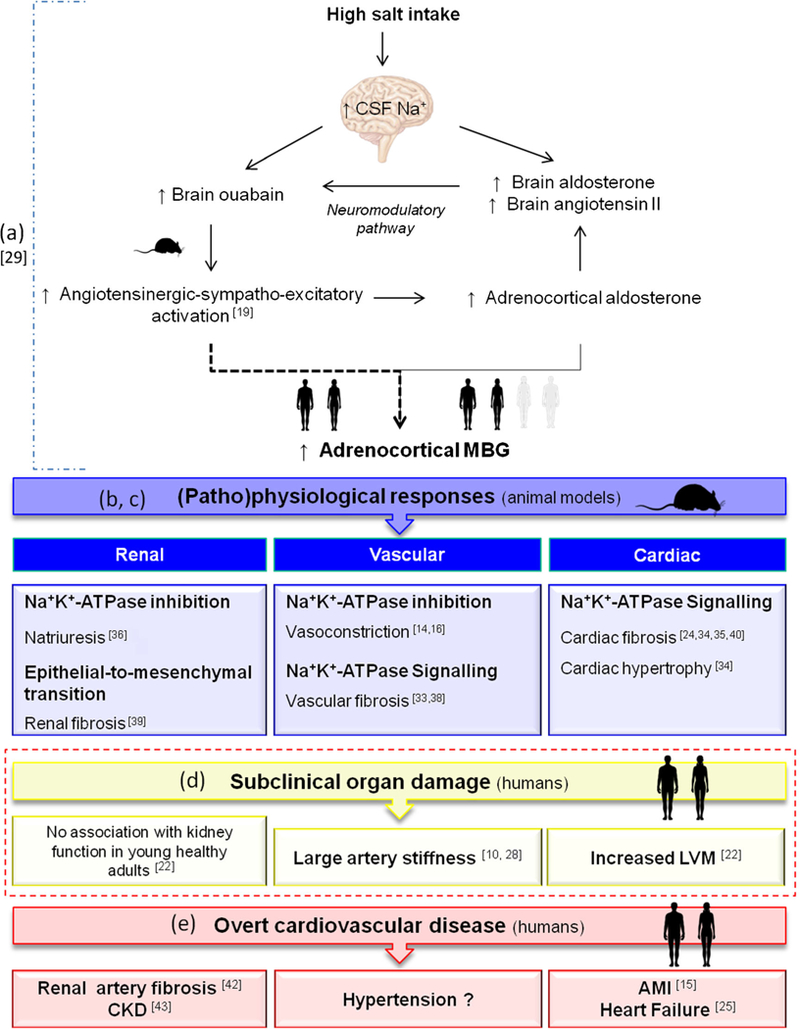Fig. 1.

Summary of the evidence linking MBG to an increased cardiovascular risk. a Salt intake stimulates MBG synthesis and secretion via the angiotensinergic-sympatho-excitatory pathway. b Under normal physiological conditions, MBG acts as a natriuretic hormone to stimulate natriuresis as a compensation for increased salt intake. c Excessive MBG production promotes pathophysiological responses including vasoconstriction, vascular, renal, and cardiac fibrosis. d Evidence from human studies demonstrate that elevated MBG associates with measures of subclinical target organ damage that may promote the development of cardiovascular disease. e Elevated MBG has already been observed in several overt cardiovascular diseases. AMI, acute myocardial infarction; CKD, chronic kidney disease; CSF, cerebral spinal fluid; MBG, marinobufagenin
